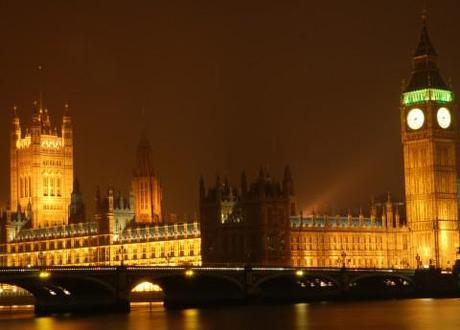 MPs rebel on House of Lords reform.
MPs rebel on House of Lords reform.
The background
Is it time up for the coalition? Nick Clegg’s plans to turn the House of Lords into a mostly elected chamber passed on principle with a majority of 338; but 91 Conservative MPs opposed it – the biggest rebellion since the Coalition came to power. Liberal Democrats, reported the BBC, warned that they might not back Conservative plans to reform constituencey boundaries in retaliation.
A vote on the timetable for debating the reform was dropped, since it looked like the Government would lose; in the vote on the principle of Lords reform, Labour supported the government. Conor Burns resigned as parliamentary private secretary to Owen Burns (Northern Ireland Secretary) over the vote; Angie Bray was sacked as a PPS after rebelling. Commentators are saying that this is a real test for the Coalition government. Lords reform is a Liberal Democrat baby; most agree that whilst the Lords is in need of some reform, Clegg’s suggestions aren’t the way to go about it. This will be a test for the Coalition, but it won’t break, mostly because if it did, the Lib Dems would disappear into the abyss.
“This is a huge triumph for our party, and a clear mandate to deliver much needed reforms to the House of Lords,” said Nick Clegg, the Deputy Prime Minister.
What do the plans propose?
The BBC gave the details: A smaller chamber, of 450 members; 80 per cent would be elected, though 20 per cent would be appointed; peers would serve for 15 years; there would be fewer Bishops, and members will not have the title of Lord.
The Lib Dems are silly; Cameron should learn how to control them
Max Hastings in The Daily Mail said we would find Nick Clegg “richly comic” if he wasn’t part of the government. The result of Clegg’s proposed reforms is a “political shambles.” All this fuss about the Lords will “distract from the business of governing.” The Lib Dems are a “dead weight”, unable to see beyond their own silly obsessions about wind turbines and human rights. Introducing Lords reform is “as useful as a catflap in an elephant house.” It’s time for David Cameron to grow up, and push Clegg “back into his playpen.”
The Coalition is in all right shape, but it will lead to difficulties
Well, the Coalition is “less battered,” said Andrew Grice in The Independent, than it would have been if it had “suffered an embarrassing defeat.” But it has left “scars”, with Cameron irritated by the Lib Dems’ “amateurish” tactics. It’s left “a bitter taste on both sides”, and though the Coalition won’t break, it will lead to a “more difficult phase.”
The Lib Dems have been ridiculous
Clegg had a point, said Daniel Finkelstein in The Times. There is a strong case for reform. But the Lib Dems have bished up: by saying they’ll oppose the Government’s plan to reduce MP numbers, they’re shooting themselves in the foot. It’s “such an extraordinary thing to do” that Finkelstein “found it hard to type out the paragraph.” The problem is that not many people, apart from Clegg, actually want Clegg’s reforms. He’s pursuing something that most voters “don’t care about” – and there’s “no consensus.” The Lib Dems will be “battered to a pulp” over this.
Cameron’s authority has been dented; the future lies in Labour’s hands
The real story, said George Eaton in The New Statesman, is the size of the Tory rebellion. It beat the record of 82 last year over the EU referendum. Cameron managed to avoid an outright defeat – but his authority’s been “badly dented.” Labour now has the key to Lords reform, but the Coalition will have to offer something in return for its backing – how about a referendum?

